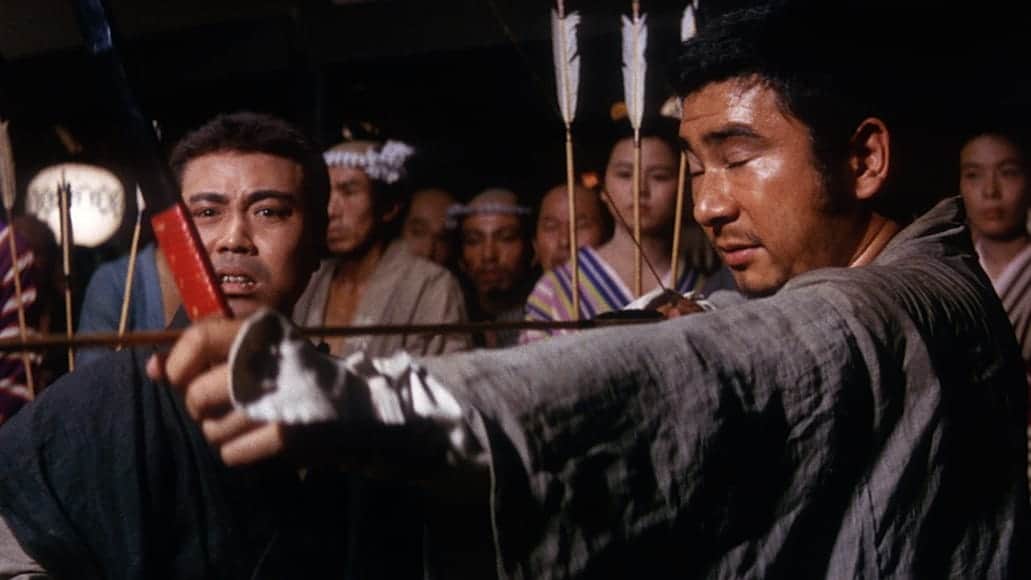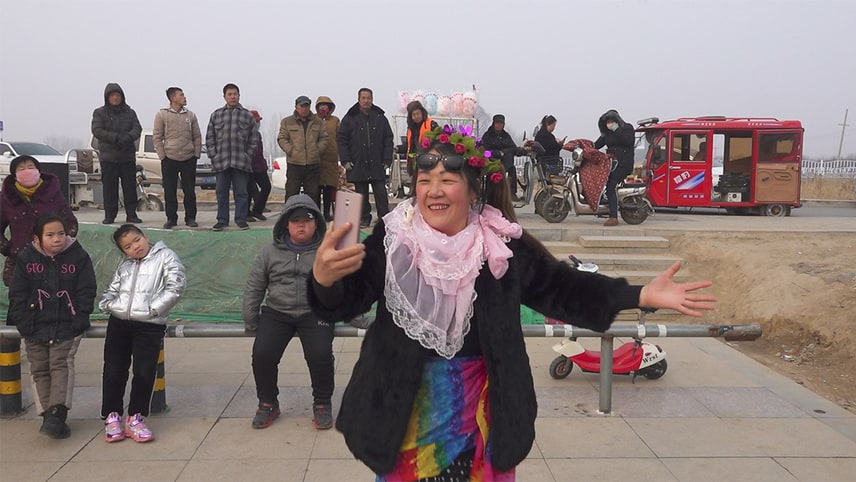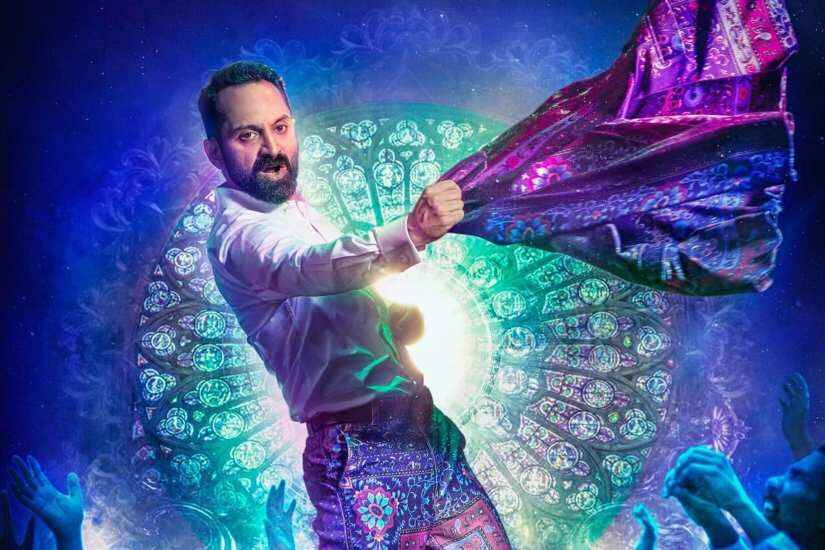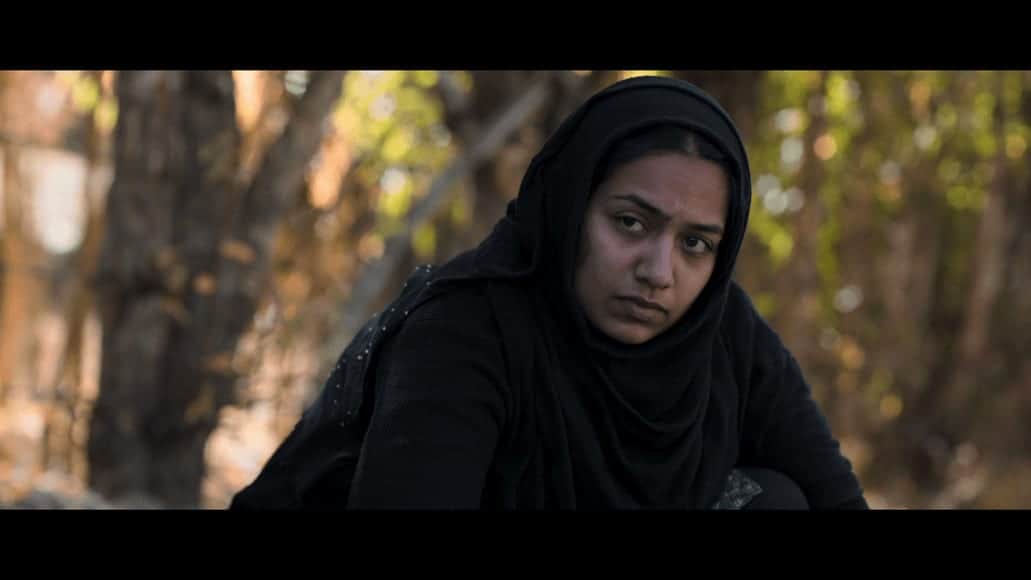by Eleo Billet
Released last year as a world premiere at FANTASPOA film festival, Yoshihiro Nishimura's new work stars transgender actress Anna Nagasaki in a picture that is, as usual, wild, bloody, and fun. However, the limits of the director's creations are becoming more and more apparent since, despite its pleasant sides, the movie feels very recycled.
Subscribe to our YouTube channel by Clicking on the image below
As with all of Yoshihiro Nishimura's films, it is hard to accurately describe the unfolding story. Sometimes the characters' names are not given, incongruous events occur apace, and the moral, if there is one, is blurred. But we will give it a try. The storyline centers on a Chinese yakuza organization, discriminated against by the Japanese, which has just lost its leader and several of its members. Cornered, the survivors are aided by a young pink-haired woman who comes out of nowhere and fights with vigor. As she is mute and performs miraculous healings, the poor Chinese inhabitants name her Maria and start to worship her. But the battle is far from over against Hime, a business leader and torture enthusiast, and her accomplices, Cloud Girl and Umbrella Man. In addition, a new threat from another dimension approaches.
As always with these kinds of productions, the characters are over-the-top and mostly ridiculous. Between the grief-stricken and cowardly yakuza, the sadistic villain who laughs while slicing people with a laser, or Cloud Girl and her little song, all the elements tell us not to take the film seriously. Nevertheless, the characters are not endearing, due to a lack of knowledge about them. And yet, the director tries to include darker themes in relation to them.
Check this interview with Eihi Shiina
First, the movie attempts a commentary on anti-Chinese racism in Japan, which, from a Western viewer's point of view, renders the film awkward, especially since the subject is treated clumsily. Hime's motives, besides the racism symbolized by repeated insults, are not well defined. Then, the story tackles, more broadly, various discriminations, between the poverty of the Chinese community in this futuristic world and the reactions to Maria's transness. However, it also fails since Maria, in the end, does not have much to do in the film. She has little agency and rarely expresses her feelings. Thus, her portrayal is retrograde, though respectful: the actress is at least not shown naked or abused. As for the Chinese community, this brings us to the third point, which is religion. The people Maria cares for are already very religious but, because of her actions, become devotees who follow her even into battle. While this is shown as a positive force in the fight against evil, the scenes of praise seem not religious but sectarian. Therefore, the director's message is confusing, as he lacks the subtlety to represent the power of religion and the blindness it can bring.
A self-production, “Holy Mother” is the definition of a free, creative, and generous cinema. Gory as the director has known how to do since his first film, and organic, especially with these bloody bodies that form sculptures or become useful amusing objects. The dismemberments are numerous and the practical effects of Yoshihiro Nishimura very impressive. But, as with his other works, the budget is not up to his ambitions. This can be noticed in the picture between the reutilization of the creatures with toothed lower body, from “Tokyo Gore Police”, and the scarce care given to the scenery and costumes that look cheap. The music with its religious intonations is far too present, but it has its importance to reinforce the iconography of the Madonna that enfolds Maria.
Let's not forget the actors who, for a splatter film, perform quite well. Eihi Shiina has a blast in the role of Hime, the sadistic racist with a laser and even recreates the iconic sequence from “Audition”. As for the artist Anna Nagasaki, she is a true talent, even if she doesn't have the opportunity to demonstrate the extent of her abilities. What is welcome, however, is to have her cast, a trans woman, to play a powerful and beloved Madonna. The side characters are not worth remembering, as they are too anecdotal and bland. They are far from the mythical creatures of “Tokyo Gore Police”, even if Natsumi Tadano, who plays Cloud Girl, is entertaining.
As always with Yoshihiro Nishimura, it's hit or miss. And with his mute and super-powered transgender heroine flying away, propelled by the explosion of her victim's arteries, it just barely manages to be a pleasant experience.
















